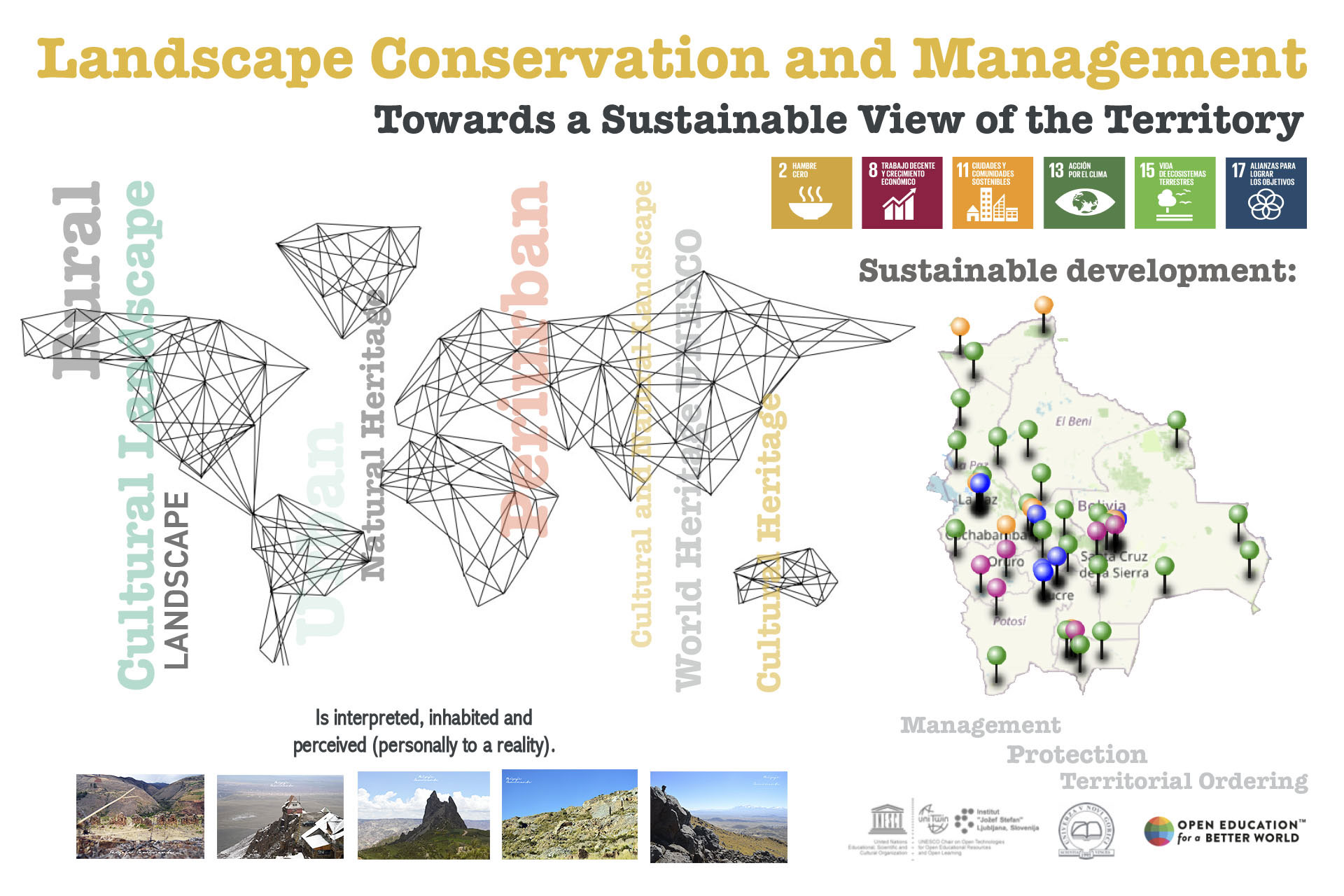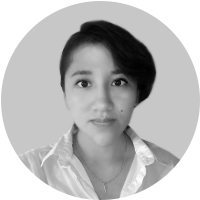
PROJECT
Landscape Conservation and Management: Towards a Sustainable View of the Territory
The project is about Landscape Management, is focused on recognize the landscape not only as an element perceived as being aesthetic and pleasing to the view of the observer, but as a scenario resulting from the interaction of human activities as a cultural body in a certain territorial area of geographical and physiographic characteristics. Natural and cultural landscapes are dynamic because they are transformed by man- place interaction and the space- time relationships that are generated. These spaces are classified as: urban, peri-urban, rural and natural, with the presence of biodiversity of endemic and unique species in the world, ecosystems that are closely related, containing renewable and non-renewable natural resources, with samples of material and material cultural heritage throughout its territory. The landscape contributes to the sustainable development of social, economic and environmental of the territories. So it is the duty of each State promote the protection, having to assume actions for its preservation, management and territorial order. Landscape management aligns with the following United Nations Sustainable Development Goals 2030.
Author

Ana Patricia Huanca Paco
Ana Patricia Huanca Paco is part of the Bolivian Network of Landscapes and the Society of Landscape Architects, Ecology and Environment (acronym in Spanish SAPEMA) of Bolivia. In her training as an Architect and Specialist in Cultural Landscapes she has been developing the technical evaluation, valuation, research, promoting the identification of public policies for the recognition of the Landscape Conservation and Management and its value of cultural and natural heritage. Developed works at the Ministry of Culture and Tourism, and with international bodies such as UNESCO and AICS. It has knowledge and extensive experience in coordination and development projects from the active participation of local communities in relation to their landscapes, territories and cultural and natural heritage, promoting a socio- economic development for the well-being and quality of life of the inhabitants towards a sustainable view of the territory. It addresses the topics from a theoretical and practical transdisciplinery perspective, of aspects such as territory, landscape, biodiversity, natural resources, archaeology, agriculture, anthropology; they are useful for broadening the perception of the study and analyzing the complexity of the situation in the investigated context. His training in higher education is in the Master’s Degree in Landscape, Heritage and Territorial Studies – Spain and Agricultural Heritage Systems – Italy.
Mentor

Virginia Rodés
Virginia Rodés is Associate Professor, Coordinator of the Virtual Learning Environments Program of the and Co-Responsible of the Interdisciplinary Centre on Open and Accessible Educational Resources, at Universidad de la República, Uruguay. Her research lines addresses the study of educational technologies in Higher Education, with emphasis on Open Education. She has led numerous national and international R&D projects, with funding from the European Commission, AECID, CYTED, FRIDA, among others. These resulted in the development and dissemination of educational technologies and open and accessible education initiatives in Uruguay and in Latin America. She is a member of the Open Education Advisory Board of the Open Education Working Group, Open Knowledge International, integrates the LATAM Regional Node of the Open Education Consortium, is part of the coordinating group of the Latin American Community of Learning Objects and Technologies (LACLO), and she is alumni of the Global OER Graduate Network (GO-GN). She es Doctor in Equity and Innovation in Education (University of Santiago de Compostela, Spain), Master in University Education and Bachelor in Educational Communication (Universidad de la República).
